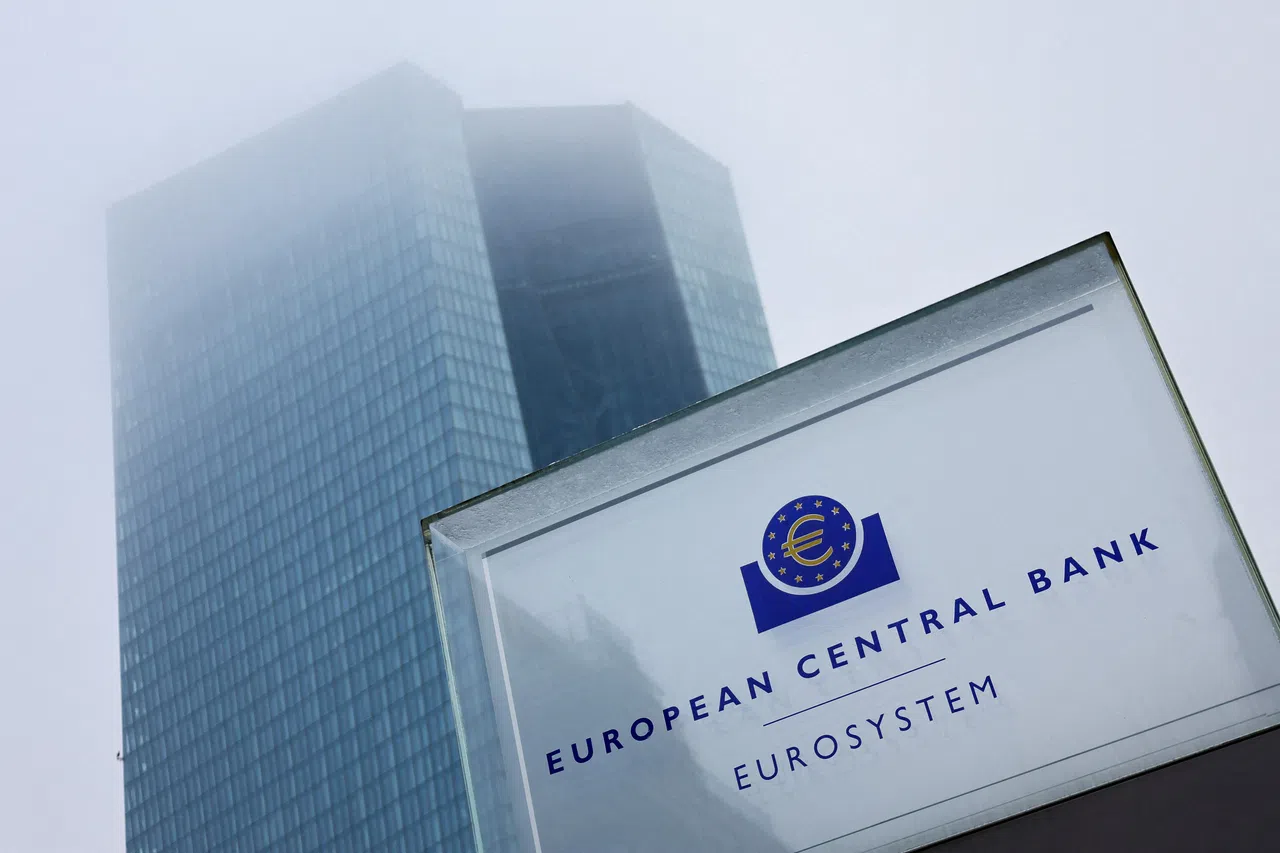THE European Central Bank (ECB) is set to enter a new phase of unpredictability as the terms of seven of its 26 interest rate-setters end by December, marking its biggest personnel shakeup since 2019.
They include the panel’s longest-serving member, Klaas Knot of the Netherlands, along with several former finance ministers who were veterans of Europe’s debt crisis and whose expertise may be missed as budgets are once again stretched and a US-led trade war unfolds.
After the eurozone’s worst-ever spike in inflation, even some of those who succeed in getting reappointed face gruelling ordeals. Latvia’s Martins Kazaks, who was confirmed on Thursday (Feb 6) for another five years, had been in limbo since his first term ended in December, with politicians in the Baltic country trying – but ultimately failing – to replace him.
While a radical change of course is unlikely in Frankfurt, the upshot is that ECB watchers will have a tougher task and the balance between hawks and doves may shift. That’s far from an ideal juncture, as likely tariffs by US President Donald Trump on the 20-nation trading bloc threaten to kill off already meagre economic growth expectations.
“These changes come at the worst possible time as the ECB will be facing difficult decisions this year – the economic outlook has worsened and could worsen even more with Trump’s expected policies, while at the same time, inflation is still too high,” said Carsten Brzeski, head of macro research at ING. “An ECB with up to seven rookies could be more prone to make mistakes.”
The latest batch of data out of the eurozone sums up the ECB’s challenge: Gross domestic product unexpectedly failed to increase at the end of 2024, while inflation wrong-footed analysts by ticking higher in January.
BT in your inbox
Start and end each day with the latest news stories and analyses delivered straight to your inbox.
Officials remain confident that consumer prices will fall into line with the 2 per cent target over the coming months and plan to plough on with monetary loosening that’s already brought the deposit rate to 2.75 per cent from 4 per cent in mid-2024. But how far they push is unclear, and newcomers could make the path and the destination harder to discern.
“When new members join the Governing Council, it’s not immediately clear what they stand for and they’re often reluctant to give signals at first,” said Jari Stehn, chief European economist at Goldman Sachs. “Less guidance makes accurate forecasting more challenging.”
Spain’s Jose Luis Escriva is a case in point. After assuming his role in September, he refrained from making public statements for some time, despite his vast monetary policy knowledge as an economist at both his own country’s central bank and the ECB.
Many analysts argue that the current downward trajectory for borrowing costs is clear, and – despite the turnover – continuity at the ECB is guaranteed, particularly as none of the personnel changes will touch the powerful Executive Board.
“The ECB is well protected in terms of decision-making and independence,” said Anatoli Annenkov, economist at Societe Generale. “In that sense, the institution is more important than the person.”
Even so, after “autopilot” rate cuts in January and March, senior HSBC economist Fabio Balboni reckons “things could heat up in the spring” as hawks and doves jostle for position.
One debate that looks set to intensify is over the so-called neutral rate, which neither restricts nor stimulates economic growth. Views differ on where this theoretical level is, with policymakers also at odds over whether to go below it.
That makes potential tilts in the balance important, with four of the seven Governing Council members – including Knot and Austria’s Robert Holzmann – leaning hawkish. The latter will be replaced by Labor and Economy Minister Martin Kocher, who’s rarely commented on monetary policy, beyond commending the ECB’s inflation-fighting efforts.
The overhaul could also slow ECB reactions, should Trump make good on his trade threats against the European Union. Others possibly heading for the exit are Portugal’s Mario Centeno, a former president of the Eurogroup, and Finland’s Olli Rehn, who was a commissioner for the bloc during its sovereign debt crisis. The latter, though, appears to have better prospects for staying on.
The flip side of that argument, however, is that too many politicians are joining the Governing Council, potentially testing the ECB’s independence. President Christine Lagarde recently stressed the importance of being able to act without political meddling when the economic backdrop is volatile.
It’s “imperative that central banks have the independence to fully deliver on their price stability mandates”, she said.
The consensus is that the ECB will take this year’s staff changes in its stride, with markets still very much focused on data rather than personnel as they calibrate their interest-rate bets.
But the shakeup could offer a taste of a more meaningful jolt to come in 2026 and 2027: That period will see not only Lagarde’s term run down but also those of vice-president Luis de Guindos, chief economist Philip Lane and executive board member Isabel Schnabel. BLOOMBERG






